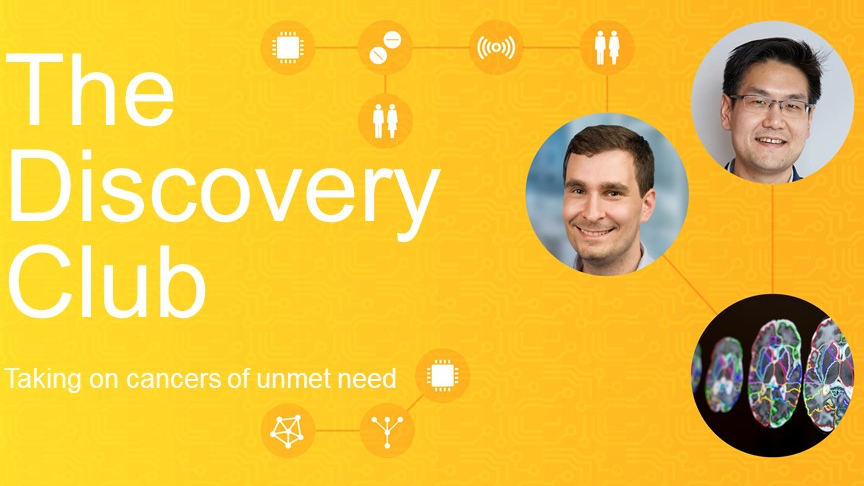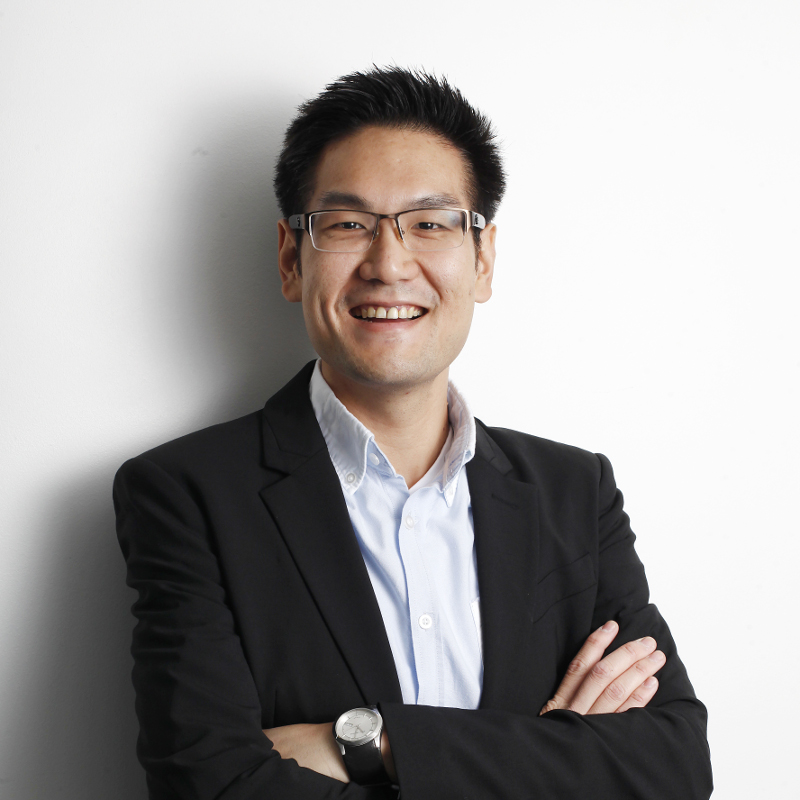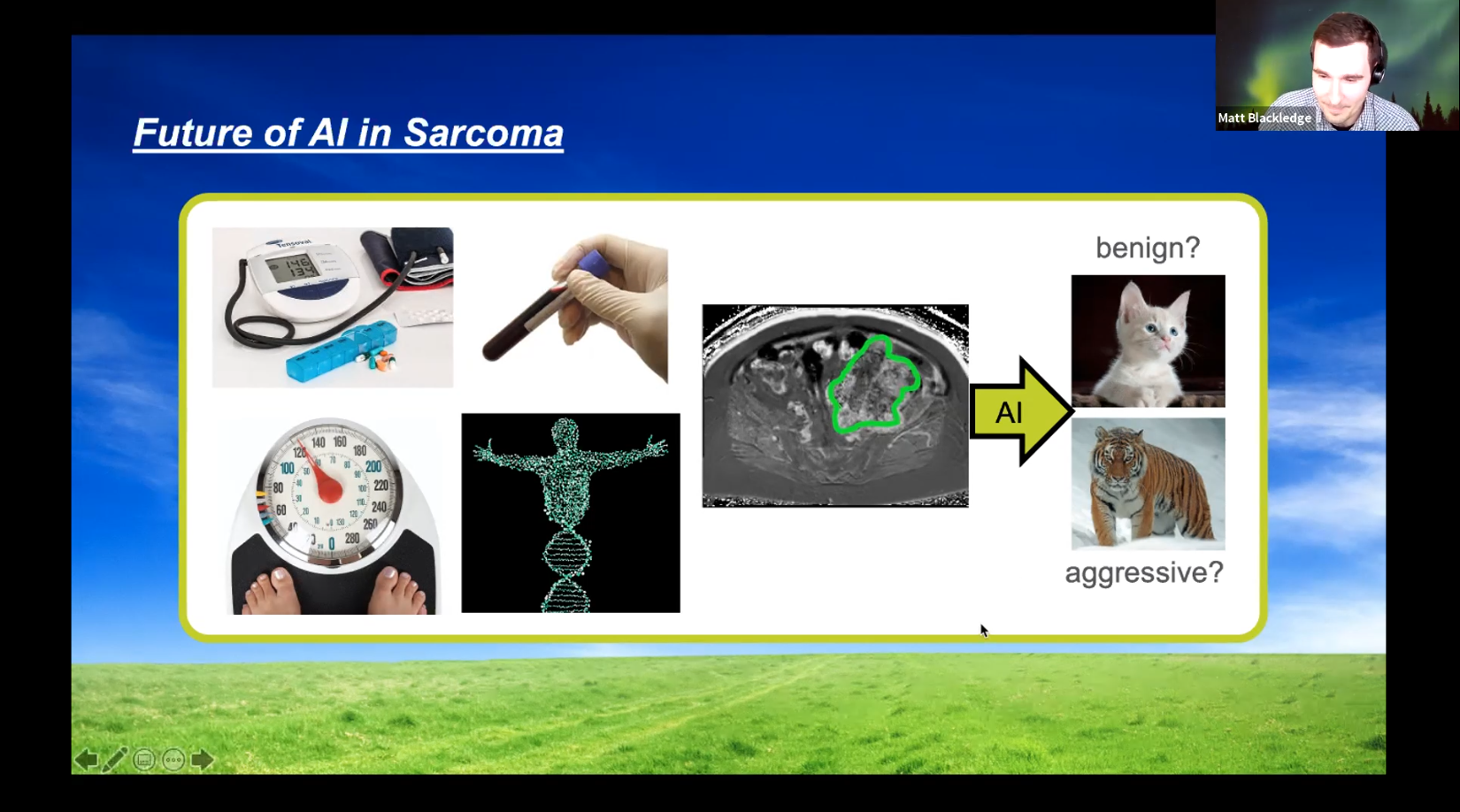
Being diagnosed with a rare cancer can be a very lonely and daunting experience – with fewer than 4,000 new cases in the UK each year, GPs may only see one or two rare cancers throughout their careers, so diagnosis can come late and tumours can be harder to treat.
But with over 200 types of cancer classed as ‘rare’, they make up around one fifth of all cancers in the UK. By using the latest techniques, sharing resources and drawing on the expertise of colleagues at the ICR and around the world, our researchers are learning more about rare cancers and how to tackle them.
For our latest Discovery Club, members met virtually with Dr Paul Huang and Dr Matthew Blackledge, who are using cutting-edge methods to assess and treat rare cancers such as sarcoma and other cancers of unmet need. During the evening, guests learned more about how they helping to find new treatment options for these patients who desperately need them - and why philanthropic support is so vital.
The evening included presentations from both researchers, as well as from Clinical Research Fellow Chris Wilding and PhD student Imogen Thrussell who shared more about the particular projects they are working on in their labs.
Overcoming the challenges of cancers of unmet need

Dr Paul Huang is working to understand more about sarcomas, rare cancers that can occur anywhere in the body and affect connective tissue, such as bone, muscle and fat.
As he explained to Discovery Club members though, there are many barriers to advancing research in this area, including the many different types of sarcoma, fewer patients to study and often scarce funding. This is why, he said, philanthropic support for research into these cancers is crucial – the partnership of charities and generous donors helps us lead the way in drug discovery for cancers that may not otherwise receive funding via traditional routes.
Dr Huang and his team are overcoming some of these challenges by establishing large-scale collaborations to pool knowledge and resources.
He is the Deputy Director of the Joint Sarcoma Research Centre, which combines expert clinical knowledge at The Royal Marsden with the ICR’s research expertise, not only to find new drugs, but to find ways to improve outcomes for sarcoma patients.
Their flagship programme is the Sarcoma Accelerator – a multidisciplinary collaborative research programme which is using a host of techniques including clinical data, tumour DNA sequencing, data science and artificial intelligence to understand the biology of sarcoma and develop new drugs.
Improving imaging with artificial intelligence

Physicist Dr Matthew Blackledge is combining artificial intelligence (AI) with medical imaging to understand how sarcoma responds to treatment.
During his presentation to Discovery Club members, he explained how Magnetic Resonance Imaging (MRI) builds detailed pictures of tissue inside the body that can tell researchers a lot about the biology of tumours.
While MRI is an invaluable tool, the sheer amount of data produced can be difficult to manage. But that’s where AI comes in:
Dr Blackledge is using a pattern recognition technique called machine learning to train computers to read MRI results and uncover hidden information about the disease.
Machine learning mimics how the human brain learns to understand the world around it, and by feeding computers thousands of MRI results of patients with cancer, they can pick up the subtle changes that indicate response to treatment or development of disease resistance. This approach could help build ‘digital biopsies’ of cancer, providing clinicians with as much biological information as possible, to potentially help them make decisions about a patient’s treatment plan.
AI and machine learning can also speed up MRI by filling in the blanks, meaning that fewer scans are needed, which is more convenient for patients.
The crucial role of philanthropic support
Speaking at the event, Professor Paul Workman, our Chief Executive said: “The mortality rate for some rare and hard to treat cancer types has seen very little improvement over decades. But as a world-leading cancer organisation, as a university and as a charity, the ICR has a special responsibility to take on the challenge associated with rare cancers of high unmet need, to improve the outcomes for patients that have those tumours, and to learn lessons that could be applicable to other cancers.”
Help us continue our vital research
Our Discovery Club members are part our generous community of donors, who help us to drive forward our scientific strategy through philanthropic investment in key organisational priorities, ensuring that new discoveries are brought rapidly into the clinic to benefit patients. This event is one of an annual series to update members on our science and show them how their support is making an impact.
This year, our key priorities are:
• Improving the outlook for people with cancers of unmet need
• Pursuing new lines of enquiry in tackling the DNA damage response
• Training the cancer research leaders of the future
If you would like to find out more about how you can make a difference to the ICR's work and to patients’ lives, please contact Hannah Joyce, Deputy Director of Philanthropy.